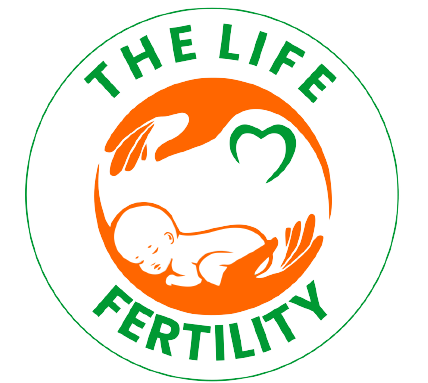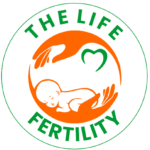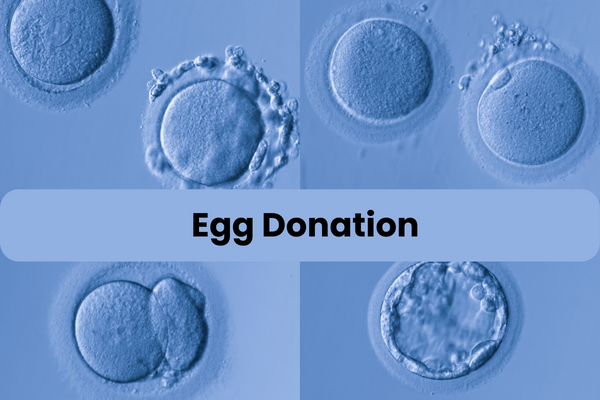Introduction
The act of donating eggs is an extraordinary display of selflessness, possessing the profound ability to transform lives. Within the confines of this comprehensive guide, our objective is to illuminate this act’s altruistic essence and bestow upon you an in-depth comprehension of its intricacies. Our journey through the landscape of egg donation will navigate through its vital significance, the precise procedures it encompasses, as well as the complex web of emotions and ethical considerations that intertwine with this process.
As you reach the culmination of this article, you will possess a lucid and complete perspective on the multifaceted realm of egg donation, recognizing its profound influence on both individuals and families alike. This guide is designed to equip you with the knowledge and insight needed to appreciate the gravity of this remarkable act.
What is Egg Donation?
Egg donation represents a profound medical procedure, an act of unparalleled generosity, wherein one woman, known as the donor, graciously contributes her eggs to another woman, the recipient, with the heartfelt purpose of aiding her in the miraculous journey towards conceiving a child. It is, without a doubt, a selfless gesture that has the power to instil boundless joy in the lives of individuals and couples grappling with the poignant challenges of infertility.
At its core, egg donation epitomizes an altruistic offering, where the biological gift of life transcends the confines of genetics. The donor’s decision to share her eggs holds the promise of fulfilling the recipient’s dreams of motherhood. This remarkable act serves as a beacon of hope for those who have traversed a path filled with fertility trials and tribulations.
In the realm of reproductive medicine, egg donation emerges as a beacon of light, illuminating the way for those yearning to embrace parenthood. It underscores the profound interconnectedness of women supporting each other in the most fundamental of ways, ensuring that the flame of hope continues to burn brightly even in the face of infertility’s challenges. Egg donation, in its essence, is the embodiment of compassion, resilience, and the unwavering belief in the power of human kindness.
The Importance of Egg Donation
Egg donation assumes a central role in providing a lifeline to couples and individuals grappling with the daunting challenges of infertility. This profound gesture of generosity not only symbolizes hope but also stands as a beacon of light for those whose journey through various fertility treatments has been marked by frustration and unfulfilled dreams.
In assisted reproduction, egg donation emerges as a transformative option, opening doors for those for whom traditional approaches have fallen short. This process becomes the bridge to realizing the dream of parenthood, breathing new life into the aspirations of hopeful parents.
Egg donation is the embodiment of optimism, providing a second chance for those yearning for the pitter-patter of tiny feet in their lives. It is a testament to the resilience and the unwavering spirit of individuals who refuse to let infertility define their destiny.
Egg donation not only offers an opportunity to create life but also exemplifies the unwavering spirit of human kindness, bringing forth a promise of new beginnings for families and a brighter future for all involved.
The Egg Donation Process
Comprehending the intricacies of the egg donation process is paramount. It encompasses a meticulously orchestrated series of steps, meticulously designed to ensure a successful outcome. These sequential stages customarily comprise;
Initial Consultation:
The process begins with an initial consultation with a fertility specialist. During this appointment, the potential donor’s medical history, family history, and lifestyle are discussed. This helps in determining eligibility.
Screening and Testing:
Once eligibility is established, the donor undergoes a series of medical and psychological tests. These tests include blood work, genetic screening, and infectious disease testing. A psychological evaluation is also conducted to assess the emotional readiness of the donor.
Legal Agreements:
Legal contracts are drawn up, outlining the rights and responsibilities of both the donor and the recipient. These agreements cover issues like parental rights and confidentiality.
Synchronization:
In a typical cycle, the donor’s menstrual cycle is synchronized with that of the recipient through medications. This ensures that the recipient’s body is prepared to receive the eggs.
Ovarian Stimulation:
The donor receives hormonal injections to stimulate the ovaries to produce multiple eggs instead of the usual one per menstrual cycle.
Monitoring:
The donor’s progress is closely monitored through blood tests and ultrasounds to track the development of follicles (fluid-filled sacs that contain the eggs).
Egg Retrieval:
When the follicles are mature, an outpatient procedure known as egg retrieval is performed. A thin needle is used to extract the eggs from the ovaries, typically under sedation.
Fertilization:
The retrieved eggs are then fertilized with the recipient’s partner’s sperm or donor sperm in a laboratory. This can be done through in vitro fertilization (IVF).
Embryo Transfer:
Once fertilization is successful, the resulting embryos are cultured for a few days. Then, one or more embryos are transferred to the recipient’s uterus, where they can implant and develop into a pregnancy.
Monitoring and Pregnancy Test:
The recipient is closely monitored to check for signs of pregnancy. A pregnancy test is conducted to confirm the success of the procedure.
The egg donation process is a complex but highly regulated and successful method for helping individuals and couples achieve their dream of parenthood. It requires careful medical and psychological evaluation and support throughout to ensure the safety and well-being of all parties involved.
Qualifications for Egg Donors
Becoming an egg donor is a selective process that demands specific qualifications to guarantee the well-being of both the donor and the recipient. Potential donors must meet stringent criteria to ensure safety and optimal health. These prerequisites encompass a range of essential requirements which include the following;
Qualifications for egg donors encompass a set of crucial criteria that individuals must meet to ensure the safety and well-being of both the donor and the recipient. Some of the common qualifications typically include:
Age: Donors are usually required to be within a certain age range, often between 21 and 32 years old. This age range is chosen to maximize the chances of successful egg retrieval and minimize potential health risks.
Health and Medical History: Donors should have a clean bill of health, both physically and mentally, without any significant medical or genetic conditions. A detailed medical history and genetic background check is typically performed.
Non-Smoker: Many programs require donors to be non-smokers and free from substance abuse to ensure the best possible environment for the developing embryo.
Body Mass Index (BMI): Donors are often expected to have a healthy BMI to reduce health risks during the process.
Regular Menstrual Cycles: Regular and predictable menstrual cycles are preferred to synchronize the donor’s cycle with the recipient’s.
Commitment: Donors should be committed to the process, which can take several weeks and involve multiple medical appointments.
Psychological Evaluation: Some programs may conduct a psychological evaluation to ensure the donor’s mental well-being and readiness for the process.
It’s important to note that these qualifications can vary depending on the fertility clinic or program, and local regulations may also play a role. Potential egg donors should consult with a qualified medical professional or a fertility clinic to understand the specific qualifications for their region and chosen program.
Emotional Aspects of Egg Donation
Egg donation transcends the physical realm; it carries profound emotional weight for all parties engaged in the process. Recognizing and proactively addressing the emotional dimensions is paramount. This journey, marked by empathy and compassion, extends beyond the clinical aspects, touching the depths of human connection and the profound impact it has on both donors and recipients.
Acknowledging and embracing these emotional intricacies is a crucial step toward supporting the well-being and mental health of everyone involved in this remarkable act of generosity.
Egg donation is a deeply emotional journey, both for the donor and the recipient. The process evokes a spectrum of feelings and considerations:
Altruism and Empathy:
Donors often experience a profound sense of altruism and empathy, knowing they are helping someone fulfill their dream of having a child.
Privacy and Disclosure:
Recipients may grapple with when and how to disclose the use of an egg donor to their child. This decision carries emotional weight and requires thoughtful consideration.
Emotional Connection:
Donors and recipients may develop a unique emotional bond during the process, as they share a common goal.
Expectations and Hopes:
Both parties may have expectations and hopes, which can create emotional highs and lows throughout the journey.
Grief and Loss:
The process may also involve grief and loss for some, particularly for donors if they have a personal connection to the recipient.
Post-Donation Reflection:
Donors may experience emotional reflections post-donation, as they contemplate the impact of their selfless act.
Understanding and addressing these emotional aspects is vital in navigating the complex landscape of egg donation, ensuring a supportive and empathetic experience for all involved.
Ethical Consideration
Egg donation is a profound act of generosity that extends beyond the realm of reproductive science. It provokes a tapestry of intricate ethical considerations, embroiling the rights and welfare of donors, recipients, and potential offspring. This web of complexities has sparked intense debates and the establishment of stringent regulations worldwide.
The ethical dimensions of egg donation delve into the profound realms of personal autonomy, familial connections, and impartial treatment, prompting profound contemplation on the ethical compass guiding this transformative process.
Balancing Personal Autonomy:
One fundamental ethical facet of egg donation revolves around personal autonomy. It’s the delicate balance between a woman’s absolute right to decide what happens to her body and the potential consequences of her choice. Donors exercise their autonomy by voluntarily contributing their eggs, yet the far-reaching implications of this decision raise questions about informed consent and the depth of understanding required.
Familial Bonds and Egg Donation:
Egg donation invariably tugs at the threads of familial bonds. The act of receiving donated eggs may lead to complex relationships within families. The ethical dilemma arises when these familial bonds are stretched or redefined. What constitutes the best interests of the child and their right to know their genetic heritage become pertinent questions.
Equitable Treatment for All Parties:
Ensuring fairness in the egg donation process is pivotal to its ethical underpinning. This applies to the donors, recipients, and the potential offspring. Ethical considerations demand that donors are not exploited, recipients are not misled, and offspring have a right to information about their genetic origins. Striking the balance between these competing interests is an ongoing ethical challenge.
Reflection on Global Values:
Egg donation is a microcosm of larger societal values. It reflects the dynamics of choice, autonomy, family, and equity in a global context. The ethical discussions around egg donation inspire societies to evaluate their values and principles, as well as to adapt to the changing landscape of family building and reproductive choices.
Egg donation transcends the scientific realm and delves deeply into the ethical fabric of our societies. The profound ethical considerations embedded in this process necessitate continual reflection and a commitment to upholding the principles of autonomy, familial bonds, and equitable treatment for all parties involved, thereby fostering a global dialogue on values and ethics in the ever-evolving landscape of reproductive medicine.
Legal Framework
The legal terrain governing egg donation exhibits a mosaic of diversity across different nations. Understanding this multifaceted legal framework is imperative for those considering or involved in the process, as it directly impacts issues such as parental rights and contractual agreements.
International Legal Disparities:
Egg donation laws vary significantly from one country to another. While some countries maintain stringent regulations and place restrictions on who can participate in egg donation, others adopt a more permissive stance. In some regions, the anonymity of donors is protected by law, whereas in others, complete transparency is mandated. These variations create a complex web of legal considerations.
Parental Rights and Binding Agreements:
One of the central legal facets that individuals and couples embarking on the egg donation journey must be acutely aware of is the determination of parental rights. In many jurisdictions, the legal status of the intended parents is established through a meticulous process of documentation and consent. This process often involves a series of binding agreements between the donor, the recipient, and any relevant third parties. These agreements outline the rights and obligations of all involved parties, safeguarding the interests of the child, the donor, and the recipients.
Challenges and Ethical Questions:
The intricate legal framework further gives rise to ethical inquiries. Questions regarding the rights of donors to remain anonymous or have access to information about potential offspring can be particularly challenging to resolve within the bounds of the law. The delicate balance between protecting donor privacy and ensuring that individuals born through egg donation have the opportunity to access their genetic heritage is an issue that legal systems grapple with.
Comprehending the legal dimensions of egg donation is pivotal for individuals and couples entering this profoundly emotional and transformative journey. Legal disparities across nations necessitate a thorough examination of the legal framework in one’s specific jurisdiction. Furthermore, the establishment of parental rights and the careful construction of binding agreements serve as essential components of the process.
The evolution of these laws and their responses to emerging ethical concerns will continue to shape the landscape of egg donation in the years to come, making it a realm that warrants unwavering attention and vigilance.
Conclusion
In conclusion, egg donation is a gift of life that offers hope to countless individuals and couples struggling with infertility. Understanding the process, its importance, and the emotional and ethical aspects is essential for making informed decisions. If you’re considering egg donation, reach out to us at The Life Fertility Clinic and explore the possibilities. For those who wish to support this noble cause, consider becoming an advocate for egg donation awareness and breaking the stigma around infertility.
Your support and understanding can make a world of difference in someone’s life.
Remember, knowledge is power. By sharing this article and spreading awareness, you can be a part of the solution. Let’s work together to make the dream of parenthood a reality for many.
Your involvement matters, and your support can change lives.
This comprehensive guide aims to provide you with a thorough understanding of egg donation. If you have any questions or would like to know more about this topic, please don’t hesitate to contact us.




